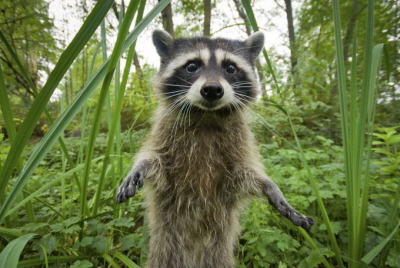The great scourge of invasive species
In the beginning there wasn’t a word so it can be suspected that it was, at least, quiet, but not for sure, because there was no ear either and from time to time something could’ve ... gone bang. There was a habitat but totally awful so nothing lived in it. Zero diversity, sulphur in the hydrothermal vent and enormous heat. The first invasive species appeared accidentally after many million years of devising how to come into being.
Once arisen, the invasive species acquired a habitat and multiplied at an unknown rate. If it multiplied as bacteria it did it fast, generations rushed like crazy, this species overflowed its habitat and, taking advantage of random mutations, adapted to the new circumstances – somehow. It surely didn’t have it easy, neither in spirit nor generally. There was no sex, there was no oxygen—it must’ve been hell--and reproduction by division. How can you plan any biodiversity in such circumstances?
It wasn’t possible to plan anything, only wait what life will come up with. Generations changed every hour, millions of years rushed by like moments, all the time bacteria were forced to adapt to something different because, though the habitat probably wasn’t much differentiated, on the other hand, who knows what it looked like from a bacterial point of view. Temperature shifted, pressure fell or increased, suddenly there was a scarcity of sulphur; these poor things met with many different misfortunes and either you adapt or else it’s the end of the road, you are not dividing anymore and your genes have had it, finito.
The lucky ones were going on, working on a new quality of biodiversity, changing habitat and for now getting pleasure only from dividing themselves from time to time.
You have to have energy to divide yourself, and that’s the snag. The shortage of sulphur which occurred sometimes meant that some of bacteria started to look lustfully at the sun and others were looking for new diet supplements by devouring their neighbours.
When a second invasive species appeared by diverging from the first they started to eat each other and God even wondered whether or not to drown them at once but it was technically difficult, for both these invasive species lived in an ocean so how do you drown them?
The ones that got the renewable energy from the sun finally started to release oxygen and God heaved a sigh of relief, because previously there was really nothing to breath with. Anyhow something happened because the species started to diverge at a faster rate.
Not only were living species roaming around but also continents, one in one direction, another in the opposite one and they didn’t stay put as God had ordained. Time went by and an invasion of species on land started, and the land delivered different habitats as well as insulation, which caused evolution to do what it wanted without any order. Only the neighbour remained as an important, maybe the most important, source of energy.
How evolution got the idea of sexual reproduction we don’t know, but nobody is suggesting that it was a top-down decision. Rather, it started spontaneously. Life had to experiment, I don’t see any other way. Maybe my Mum is right and it first went from a flower to a flower and later it was all downhill. It can be important for the dispute about invasive species because in order to have different species there must be a barrier between them. They cannot mate with each other first because of some physical barrier and later they are evolving differently and a biological barrier appears. The physical barriers, far away continents, islands, and mountains caused a new, different biodiversity to appear.
With these physical barriers anything can happen: sometimes there was a climate change and an invasive species could travel on ice, and sometimes the sea dried up and you could go across on the dry land, and sometimes the sea currents took the invaders on natural rafts, but this different biodiversity could keep on until appearance of the most invasive of species – us.
I’m a bit mixed up because on Wednesdays we have biology lessons after religion and I don’t know how it is or rather was. When God created humans in his image he immediately spotted that something was not as it should be. Here, however, testimonies differ. First, about the time of this event. Our priest-catechist is not very keen on Darwin and he doesn’t want to talk about geology, he rather implies, though nobody knows what he wants to say by it. That God created all this six thousand years ago is rather difficult to believe but some manage to do it. Anyhow, rather earlier than later, a human appeared and started to rush around mercilessly and moreover, he was ingenious and made a transport not only for himself but also for other invasive species.
And so a human transported these invasive species, sometimes because he needed to, sometimes accidentally and sometimes just for the heck of it, because he didn’t know that he shouldn’t. Everybody is shouting at him now, but was it his fault? Did God really have to create something in his own image? Who actually needed it? We only stirred things up and now we have to save species which previously could go extinct of their own accord.
There is just one conclusion: we have to say “no” to invaders but will they listen to us?
P.S. There are no racoons here which is a pity because I like them very much.
***
I drew a smiling kitten for Maria and gave her an A. Then I fell into a reverie, and then I let it go and took another notebook, not sure whether I did the right thing.
*Translated from Polish by Małgorzata Koraszewska and Sarah Lawson.
